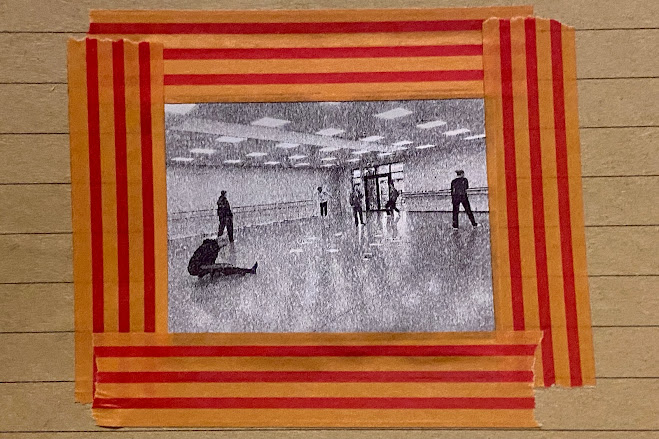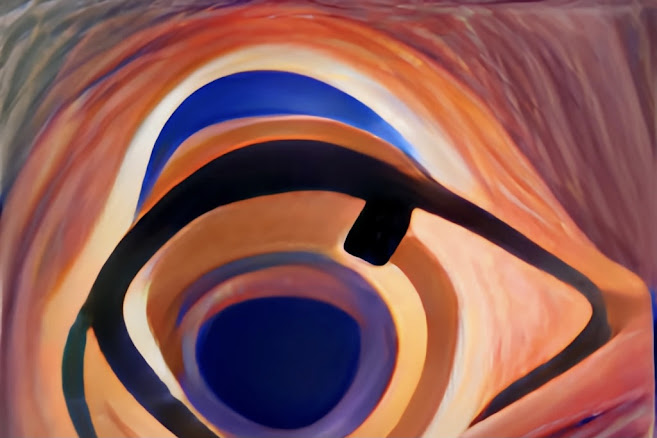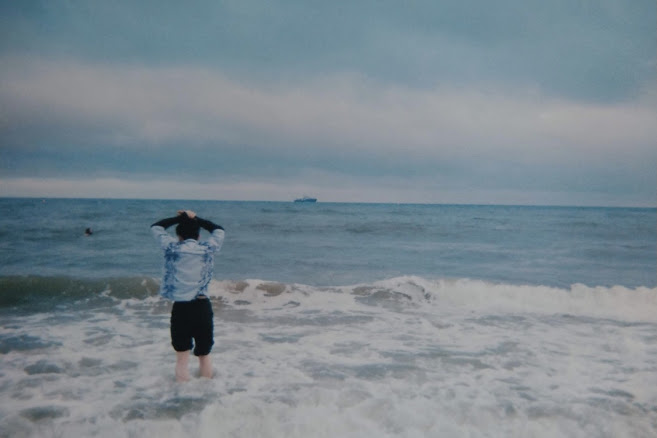5. tightly knotted to a similar string
I wanted to practically test some of the ideas from scholarship in the studio with students, here are some things that came up:
It’s so hard when my main practice isn’t necessarily pedagogy, to not connect theories around learning and teaching to my own work as a teacher. I decided to let them be a bit blurred and mashed together. I decided I would both deliver the session as a trial of taking experiential learning as form and guide, but also trying to teach and articulate some of the areas where I feel I have significant learning - but that I wouldn’t normally incorporate into my teaching practice (especially with pre-professionals.)
And here it gets messier.
Because I have a real interest in developing and making space for the autonomy of performers I work with. However, this becomes complicated as I’m engaging with theory around reflective learning which now I see relates both to what I’ve learned and also how I’ve learned it.
I feel some clarity in this:
Schön (1987) on The Predicament of Learning to Design - “Later in his studio education, or after it, he may judge for himself what he wishes to keep, discard, or combine, but he is at first unable to make such a judgment. And he may fear that, by a kind of insidious coercion, he may permanently lose what he already knows and values. He becomes dependent on his instructors. He must look to them for help in acquiring understanding, direction, and competence. As he willingly suspends disbelief, he also suspends autonomy-as though he were becoming a child again.”
This feels very true of my own training somehow. Something about unlearning but also trying to hang on to the important, the essential, or the essence of things. As I regain autonomy I start to question not only what that means but also what potential it has.
For today, I try and numb the teacher and become the coach, it’s maybe not so far from the facilitator I’m often trying to be when I make.
This is very much a test. I don’t know if it’s a good class. I don’t really know if it’s my class. I think possibly - this is the whole point.
The class has three rules:
You are not allowed to talk to each other.
You are allowed to talk one-on-one to me.
You are allowed to talk to the whole room.
First, we leave the studio and are individually assigned with the task of somehow making a strangers day better, we must complete this and be back in the studio within 10 minutes. I like to think joy fuels lots of things. It’s a reminder that our art can sometimes bring joy. I also think it just sets up a nice energy in the space.
When we are back we debate three questions:
Was this choreography?
Was this dance?
Was this a performance?
We’re never really unanimous, but I think we also discover that we don’t necessarily know what these words mean, even though we dance every day we haven’t considered what it is. I think maybe this is planting a seed towards autonomy.
Then we make solos and at the end of the session we perform them. I watch them navigate trying to understand and emulate some of my approaches alongside sustaining things that interest them - which I think is a big part of this.
I don’t physically demonstrate at any point - I wear ‘normal' clothes to remind myself to stick to this. It feels so good not to rely on my embodied knowledge.
I remember being amazed watching a theatre director repeatedly rehearse the same scene in a play, between each run she would discuss the characters intentions at this point in the story. Finally the actress stood up midway through the scene and the director was so happy - later she explained that she really wanted it to happen because it made sense to her, but she didn’t want to force it. She went on to say that a good director never physically demonstrates what they want.
During the class I’m trying to guide in this way, it’s not unfamiliar as an approach but it’s very different to see this on younger dancers. But it really transforms their physicality, I see them working in new ways. I don’t think that’s a result of anything I do, rather it’s the result of not doing so much and giving space.
Theatre practitioner Jason Warren writes about the need for autonomy in Immersive Theatre and I think that’s also present here. In my own durational work I need to create trust so performers can be autonomous because I simply don’t have the budget or brain power to micromanage 7 hours worth of performance material - especially when I’m not so interested in either repetition or simplicity.
I try and apply the same thing in class - both tasks are free but with limited time, we can use strategies we have already been taught but they are now being tested, and even just the ability to adjust these strategies under pressure feels relevant.
It was nice to bring thoughts into materiality - everything became more concrete. It also reveals the thing in it’s wonderful epic endlessness and, as ever, whilst it closes a couple of avenues it opens up twice as many.
-
Tightly Knotted to a Similar String - Anne with an E, Season 1, Episode 5



Hi Matthew! I love the three rules class has!! It must have been incredible to test this. I always feel very vulnerable when trying something out for class. I agree with you, coach, facilitator, guide, support... Thanks for sharing!
ReplyDeleteThanks Léa! Yes it's definitely a vulnerable thing but they were also super excited it was a whole new thing so that was a good reminder for me :)
DeleteHey Matthew. Thank you for sharing your thought and ideas. Your rules remind me my dance school experience. Although I do understand the motivation behind there rules, I have always wonder why not to design the class the way that students actually have a chance to discuss their experience with a classmate? Talk to the group or to the teacher is not intimate. And no one likes to look stupid in front of others or the teacher. But in a private conversation with a classmate, they have a higher chance to articulate their misconceptions. Sometimes they need a peer to explain something rather than a teacher. What do you think?
ReplyDeleteHi Olga, so good you say this - honestly I've never tried using these rules before because it does very much go against the openness I try and set up, this felt very strict! As I said I'm not really sure it was my class I was teaching - whatever that means. The reason I actually put it in place was because I observe that a lot of them haven't tried problem solving independently because they so quickly go to a classmate in my sessions - I hope that if I would now relax the rules again maybe they would be slightly more confident in relying on their own understanding before they would go to a classmate. This was the most I've seen them work on their own practice and not become streamlined to the loudest voice - so that I was very happy about.
Delete